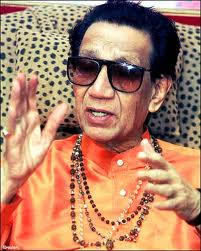
New Delhi, June 17: Division in the NDA on the issue of Presidential candidate came to the fore with Shiv Sena today skipping the key meeting of alliance leaders here.
"Shiv Sena chief Bal Thackerey will take a decision on the issue," said party leader Sanjay Raut, when asked about speculation that the Sena was against fielding any candidate against Pranab Mukherjee, UPAs Presidential nominee.
Shiv Sena is the oldest ideological ally of the BJP. It had not backed former Vice President Bhairon Singh Shekhawat in the Presidential poll last time despite BJP and several others in the alliance supporting him.
At that time, it had backed Pratibha Patil--she being the first Maharashtrian to be nominated for the top post of President.





Comments
Add new comment